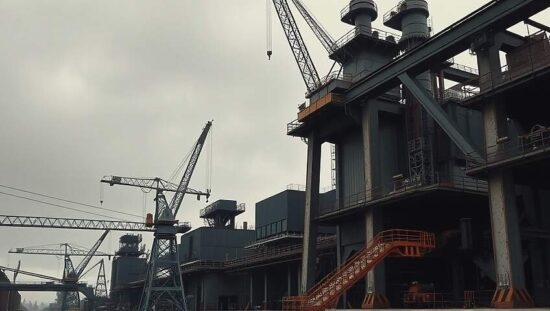A leading German steel manufacturer, Thyssenkrupp Steel, has raised concerns regarding the ongoing import of steel from Russia into the European Union. Dennis Grimm, CEO of Thyssenkrupp Steel, highlighted the contradiction between the struggles of the domestic steel industry and the sizable imports originating from Russia. He questioned the ability to justify job losses within the company while simultaneously contributing financially to the Russian war economy through the purchase of steel slabs.
Data from the German Steel Association reveals a significant increase in Russian steel slab and semi-finished product imports into the EU. Imports have risen to 3.56 million tons this year, compared to 3.26 million tons in the previous year.
Despite extensive sanctions already in place, Russian steel companies continue to deliver “in large volumes” to the EU, according to Kerstin Maria Rippel, the Director General of the German Steel Association. She emphasized the “serious consequences” these imports have for steel producers within Germany and across Europe. Rippel stated that the current situation is “completely incomprehensible” considering the import crisis affecting the European steel industry and further contributes, indirectly, to Russia’s efforts in Ukraine. She suggested options for addressing the issue, advocating for either stricter sanctions against Russian steel or effective EU tariffs on Russian steel slabs.





